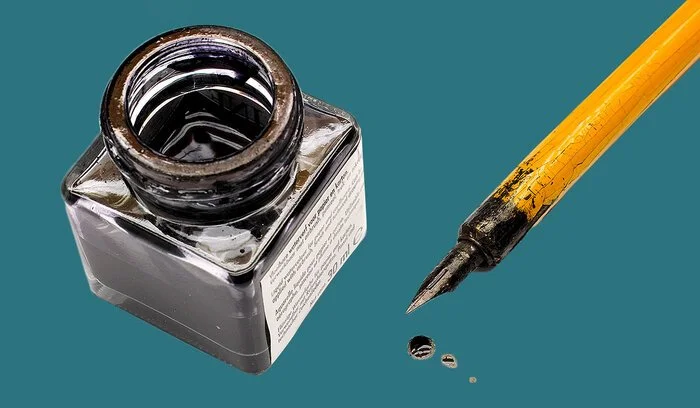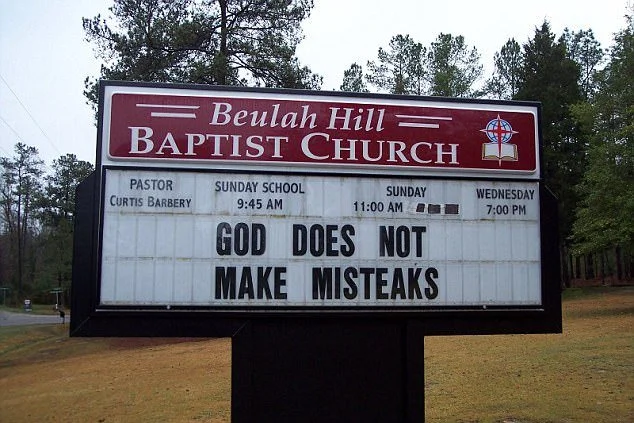By The Landlord
“The time to correct a mistake is before it is made.” – Henry H Buckley
“If I had to live my life again, I'd make the same mistakes, only sooner.” – Tallulah Bankhead
“Erudition without pedantry is as a rare as wisdom itself.” – George Sarton
“This is the type of arrant pedantry up with which I will not put.” – Winston Churchill
“Pedantry is properly the over-rating of any kind of knowledge we pretend to.” – Jonathan Swift
“To be exact has naught to do with pedantry or dogma.” – Leonora Speyer
“Pedantry is the dotage of knowledge.” – Holbrook Jackson
“Though pedantry denies,
It's plain the Bible means
That Solomon grew wise
While talking with his queens.” – William Butler Yeats
“The truth is rarely pure and never simple.” – Oscar Wilde
“The reason it's worth standing up for punctuation is not that it's an arbitrary system of notation known only to an over-sensitive elite who have attacks of the vapours when they see it misapplied. The reason to stand up for punctuation is that without it there is no reliable way of communicating meaning.” – Lynne Truss, Eats, Shoots & Leaves: The Zero Tolerance Approach to Punctuation
“And so the question remains: What aren’t we building when we are building our brands?” – Naomi Klein, Doppelganger: a Trip into the Mirror World
“When you speak regularly to people persuaded that the evidence of their own eyes and ears is ‘fake news’ while the demonstrable lies of their leader are somehow the truth, you realise that the answers are, again, not political but psychological.” – James O'Brien, How To Be Right… in a World Gone Wrong
When old age shall this generation waste,
Thou shalt remain, in midst of other woe
Than ours, a friend to man, to whom thou say'st,
"Beauty is truth, truth beauty,—that is all
Ye know on earth, and all ye need to know.” – John Keats, Ode To A Grecian Urn
The truth will out. Or mayn't it? It’s a confusing old/new world, ain’t it?
And perhaps becoming even more so, paradoxically, as access to information becomes ever more readily available, and therefore more, or less, believable.
We’ve all got our imperfections, and quirks. But from hate-stirring conspiracy influencers to random online misinformation, there does seem to be growing bug in the software, a great big ghost in the machine, and a social media spanner making a right old mess in the human works. Facts have become a brand, and things have all got out of hand.
More of that later, but to focus, this week then, we swoop in, with an approach that can be specific or general, in moods serious and also humorous and silly, and hopefully with a lot of fun, with a look at the theme, in song lyrics about correcting errors, and the issue of being wrong or right about stuff, whether that’s respecting the old-fashioned artefact of facts, or the grammatical ways of saying or writing things, respecting language, or anything else that comes to your attention. Wrong to right, clarification and correctness, precision and punctiliousness might all come into play.
But where to start? Here’s one way. A few weeks ago, on that dusty, old obscure whimsy-filled, candlelit corner of the Bar, Word of the Week, I shone a brief flickering light on the archaic term inkhornism. It refers to old-fashioned desk ink wells dipped into by quills or ink pens some readers may remember from their school days. An inkhornist is a pedant of words, while the phrase smelling of the inkhorn refers to be being excessively pedantic with language or grammar. And in that section there are a few song examples that may start some off on their quests, or spark new ideas.
Inkhornism
Pedantry then is a potent area that brings ambiguity in response, despite what it sets out to do. We’ve already seen a few ironic responses above. Where is that line between being perceived as noble guardian of language and therefore precise communication, and alienation of others? That itself is subjective, but I’m definitely on the side of those who seek to protect grammatical correctness, whether that’s the Apostrophe Protection Society, or characters such as the secret masked, self-styled grammar vigilante of Bristol, here profiled in a BBC news clip as he using his ‘Apostrophiser’ device at night to correct offending shop and other signs. Heroic.
The “grocer’s apostrophe” might often get the blame for such mistakes, but correct punctuation is vital in all forms. As Keats says above, “Beauty is truth, truth beauty”, but the meaning, inscribed upon that Grecian urn, can also somewhat change whether written with or without those invested commas.
Another protector and pioneer is Lynne Truss (definitely not to be confused with the frankly bonkers and disastrous former Tory PM Liz Truss – imagine!). Lynne Truss is the author of Eats, Shoots & Leaves: The Zero Tolerance Approach to Punctuation, a fabulous bestseller on that very subject, full of examples of how meanings can entirely change with our without the correct marks. Think of the title alone’s variation, with or without commas. Language for her is, “a sacred trust, like something out of The Lord of the Rings. You must go forth and protect the English language with your bow of elfin gold.”
Her book is full of passionate description of what is like to see incorrectness everywhere, spreading like an infection. I know that feeling. And here’s why: “We have a language that is full of ambiguities; we have a way of expressing ourselves that is often complex and elusive, poetic and modulated; all our thoughts can be rendered with absolute clarity if we bother to put the right dots and squiggles between the words in the right places. Proper punctuation is both the sign and the cause of clear thinking. If it goes, the degree of intellectual impoverishment we face is unimaginable.”
“For any true stickler, you see, the sight of the plural word “Book’s” with an apostrophe in it will trigger a ghastly private emotional process similar to the stages of bereavement, though greatly accelerated. First there is shock. Within seconds, shock gives way to disbelief, disbelief to pain, and pain to anger. Finally (and this is where the analogy breaks down), anger gives way to a righteous urge to perpetrate an act of criminal damage with the aid of a permanent marker.”
“Part of one's despair, of course, is that the world cares nothing for the little shocks endured by the sensitive stickler. While we look in horror at a badly punctuated sign, the world carries on around us, blind to our plight. We are like the little boy in The Sixth Sense who can see dead people, except that we can see dead punctuation. Whisper it in petrified little-boy tones: dead punctuation is invisible to everyone else -- yet we see it all the time. No one understands us seventh-sense people. They regard us as freaks. When we point out illiterate mistakes we are often aggressively instructed to "get a life" by people who, interestingly, display no evidence of having lives themselves. Naturally we become timid about making our insights known, in such inhospitable conditions. Being burned as a witch is not safely enough off the agenda.”
Right then, markers at the ready …
Punctuation matters but so does spelling, and beyond the pernickety, it can lead to dangerously harmful misunderstanding. Long before the current climate of toxic conspiracy-spreaders, anti-vaxxers, Flat-Earthers, and blaming migrants for everything rather than Big Pharma and the very media elites for whom misinformation is money.
So, for example, 24 years ago, in August 2000, perhaps spurred by a tabloid News of the World campaign about paedophile rings, self-styled vigilantes attacked the home of a hospital paediatrician after apparently confusing her professional title. Dr Yvette Cloete, a specialist registrar in paediatric medicine at the Royal Gwent hospital in Newport, was forced to flee her house after vandals daubed it with graffiti in the middle of the night and the word word "paedo" was written across the front porch and door of the house she shared with her brother in the village of St Brides, south Wales. Not to belittle the seriousness of the crime of child sex abuse, but really, come on, maybe check the dictionary before you decide to commit a different one.
And then more dangerously so, in 2016, spurred by different dubious online data, in a another case, father of two Edgar Welch, 28, opened fire at with a machine gun at the Comet Ping Pong pizzeria in Washington DC, believing false allegations of it being the centre of a VIP child-sex ring, and thinking he was on some rescue mission. He was arrested and later admitted his error, but the result could have been far worse.
Alternative Smiths song?
False facts are indeed dangerous weapons. It’s a growing phenomenon, perhaps in response to an ever more confusing and complex world of financial and climate instability. It is no wonder that people are clinging on to half-truths, or complete falsehoods, and also false websites and sources in the belief that because it’s available, it’s true. Should we simply condemn this, or show some compassion and understanding? Perhaps some both if the world can be tipped back in the right direction.
One man exposed to painful incorrectness more than most is the broadcaster James O’Brien, who hosts a regular phone-in discussion show for the British talk station LBC. He is unusual as many other presenters on that station are right-wing politicians and neoliberal influencers, while he is comparably more the left, but really is very much a voice of rationality, patience and reasoning. On every show he has to deal with a barrage of bigotry and misinformation, much of which brought about problems such as Brexit, and which he constantly tries to understand and correct. In this playfully titled book, How To Be Right… in a World Gone Wrong, he relates this experience, describing many of those who phone in and attack him with this response:
“He’s angry because he has spoken his mind but has now been asked to explain himself; he is being asked to think. The conflation of ‘freedom of speech’ with ‘freedom to say silly things without being challenged’ and, more, ‘freedom to insist that people have to listen to me even if they think I’m ridiculous and/or dangerous’ is rarely quite as glaring as in this case.”
The cause of all this is the skilled influencers, whether they be the likes of Nigel Farage in the UK, Tucker Carlson or Donald Trump or Steve Bannon in the US, who, with varying styles, as O’Brien describes: “Take an angry person, tell them you feel their pain, give them a target for their anger and help them to switch off their brain.” While the facts are wrong, the emotions being picked up, are right.
Sign of the times?
As well as stoking anger, those skilled in such media and political manipulation and storytelling, also exploit something about the human nature which clings to a fixed idea and ignores information which contradicts it, because “comforting lies deliver more clicks, viewers, listeners and profits than uncomfortable truths.”
Sunday lunch, anyone?
Yet correcting the misinformed can be very difficult and alienating. It makes you become perceived as being part of “the leftist elite”. Perhaps that’s partly where things have gone very wrong and divided in the US. And yet also, even when talking to those with a greater grasp of vocabulary, O’Brien, says “there are plenty who employ altogether more sophisticated language and sophistry to make similar points, demand that their right to free speech be respected, what they are really demanding is that their speech be free from scrutiny.”
Another who knows all about this subject is the Canadian writer and political campaigner Naomi Klein. One of the most recent ironic twists for her is that she has become often confused with the former feminist and now extreme conspiracy influencer Naomi Wolf. Wolf had previously written powerful books such as The Beauty Myth, but since around 2019, with the publication of her own Outrages: Sex, Censorship, and the Criminalization of Love, during which on a media publicity trail, it was exposed by BBC interview Matthew Sweet to contain a glaring factual error that a central tenet, leading to it many copies being pulped. Wolf’s career has since radically spiralled to directions, with her becoming a churner of extreme conspiracy ideas, and a media brand that simply follows the heat online of profitable blame and controversy.
Meanwhile the other Naomi - Klein, that is, continues with on her path of strong research and clarification with publications such as The Shock Doctrine (2007) or the groundbreaking This Changes Everything: Capitalism vs. the Climate (2014). Her latest book, Doppelganger: a Trip into the Mirror World, relates her experience of being perceived as the other Naomi (and vice versa) but mostly on the strange phenomenon of how in last decade the world has fractured along political and ideological lines, how and why families have become split by misinformation, why yoga moms and truckers and extreme right-wing fascists seem to turning up on the same side of demonstrations, fuelled by a fear of loss of freedom.
As Klein puts it: “Like my doppelganger projecting all of our surveillance fears on a vaccine app, conspiracy theorists get the facts wrong but often get the feelings right.”
And going deeper:
“In the Mirror World, conspiracy theories detract attention from the billionaires who fund the networks of misinformation and away from the economic policies—deregulation, privatization, austerity—that have stratified wealth so cataclysmically in the neoliberal era. They rile up anger about the Davos elites, at Big Tech and Big Pharma—but the rage never seems to reach those targets. Instead it gets diverted into culture wars about anti-racist education, all-gender bathrooms, and Great Replacement panic directed at Black people, non-white immigrants, and Jews. Meanwhile, the billionaires who bankroll the whole charade are safe in the knowledge that the fury coursing through our culture isn’t coming for them.”
Well, at least they managed the apostrophe
But how deep do you want to go? From splashing around with phrasing, to trivial facts to far great truths or otherwise, it’s time to have fun with song form. This week’s titan of linguistic and other correctness is the marvellous Maki! Put your suggestion in comments below for deadline 11pm Monday UK time for playlists published next week. All present and correct? We can but try …
New to comment? It is quick and easy. You just need to login to Disqus once. All is explained in About/FAQs ...
Fancy a turn behind the pumps at The Song Bar? Care to choose a playlist from songs nominated and write something about it? Then feel free to contact The Song Bar here, or try the usual email address. Also please follow us social media: Song Bar Twitter, Song Bar Facebook. Song Bar YouTube, and Song Bar Instagram. Please subscribe, follow and share.







